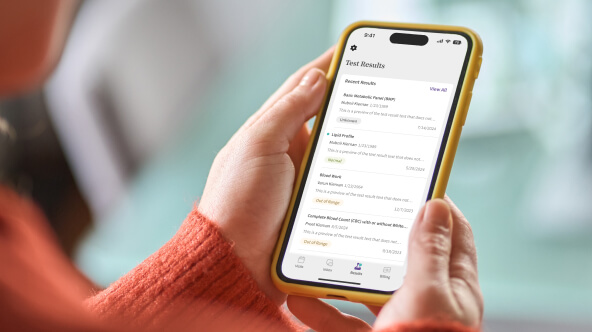The many challenges faced by healthcare workers were put into sharp relief by the COVID-19 pandemic. The difficult parts of these crucial jobs were suddenly newsworthy, as were the sometimes-alarming rates with which people were leaving the industry. However, many of these difficulties and frustrations were not new, nor was the resulting burnout.
For a variety of reasons, healthcare workers––from physicians to nurses to medical coders to lab technicians to front-office staff, and others—are exiting the field and leaving a talent and expertise gap that is difficult to fill. According to the American Hospital Association, there will be an estimated shortage of up to 3.2 million US healthcare workers by 2026.1 That’s a staggering number, and it’s unclear when, or if, that tide will turn.
Recent research from athenahealth indicates that employee retention in healthcare and operating short-staffed is taking a toll on physicians in particular and remains a leading cause of physician burnout.
Read on for a closer look at the study’s findings and to explore a few strategies that may help ease this burden on physicians and their practices.
Most physicians say that staff shortages are impacting their organization
According to new research from athenahealth, 78% of physicians say that staff shortages and/or poor healthcare staff retention are negatively impacting their organization.2 With more than three in four physicians citing staffing as a serious challenge, it’s safe to say this is a pervasive issue that is impacting the quality of care for patients and providers.
As workers are burning out and changing careers (or retiring early), the resource gap they leave behind is in turn contributing to burnout among the staff that remain. When a clinic is short-staffed, the critical operational tasks—like billing and coding, authorization-related work, scheduling, regulatory compliance, and more—must be picked up by the personnel who remain, leading to higher workloads and more after-hours work. That’s likely why, according to the same study by athenahealth, nearly two-thirds of physicians surveyed reported that a lack of qualified staff or recruiting and retaining qualified staff to handle the administrative side of healthcare is causing them to feel overwhelmed by the administrative requirements of their jobs on a weekly (or more) basis.3
Unfortunately, there is no quick fix: it takes an average of 12 months to hire and train new workers to full productivity.4 It's costly, time consuming, and takes time and attention away from providing patient care—something physicians already feel like they don’t have enough time to do.
Staffing challenges can affect quality of care and patient engagement
One of the downstream impacts of clinical staffing shortages is that there are simply fewer appointments available to patients. Not only do fewer available appointments put health outcomes at risk as patients are forced to wait, they also add additional strain on physicians. If a clinic is short on nurses or medical assistants, physicians must take on tasks like encounter prep and patient intake that would otherwise be managed by support staff. The time it takes to complete these tasks adds up throughout the day, leaving less time for available appointments, and often means less time spent with the individual patients.
Taking on additional clinical tasks is not the only factor limiting physicians’ time with patients. The immense administrative burden of operating a healthcare practice in general can also take time away from patient care.
That’s partly because so much of this administrative work is still performed manually. Many organizations have not yet implemented the sophisticated healthcare technologies that can lessen the burden via AI- and automation-enabled tools for tasks like appointment scheduling, billing and claims management, insurance verification, and others. Of those surveyed, 73% admit that their organization/practice is not set up to minimize the time they spend on administrative tasks in order to allow them to focus more attentively on patient care. Without these helpful technology tools, and with fewer support staff across the board, this administrative work falls to physicians, taking even more time away from patients.
While challenges around staffing are daunting, with no easy fixes, there are strategies physicians can take today to help keep their organizations running efficiently and successfully, even with fewer people on the team. Next, let’s look at some of those strategies and how they’re being applied.
Innovative strategies to combat staffing shortages in healthcare
As healthcare worker recruitment and retention challenges have persisted over many years, many physicians are finding ways to work around staff shortages, both in the short- and long-term. These strategies are also evolving alongside purpose-built healthcare technologies being developed to deliver solutions to streamline a variety of administrative and clinical processes.
Physicians can consider these innovative approaches to scaling operations and preserving time with patients amidst staffing shortages.
Leverage an integrated healthcare IT platform to scale administrative tasks
The right healthcare IT platform can help alleviate many of the challenges described above. Specifically, an integrated platform with robust capabilities around electronic health records (EHR), revenue cycle management, and patient engagement can help to increase efficiencies for a variety of tasks, many of which have historically been managed manually.
Here are a few of the types of tasks and processes being leveraged by clinics using an integrated healthcare IT platform.
Workflow management
Workflow management, in short, is the systematic coordination and optimization of tasks, processes, and communication within healthcare organizations. It aims to streamline processes, reduce errors, improve communication, and enhance patient outcomes.
Automation in workflow management is one of the key areas in which practices can gain efficiencies around administrative work. The more a practice can reduce the manual work required to perform its key functions, the better it can scale its existing staff resources.
Best-in-class healthcare IT platforms typically support workflow management via customizable and automated workflows for different functions, including patient encounter workflows, appointment scheduling processes, a variety of billing and payer-related workflows, and others.
Patient self-service tools
Patient portals are becoming standard across the healthcare sector. Many patients appreciate, and have come to expect, a level of access that enables them to schedule and reschedule appointments, message their physicians and care teams, view medical records and lab results, and generally take a more active role in their care planning. Enabling patients to self-serve can also remove a significant burden from staff.
Data analytics and reporting
An integrated and connected healthcare IT platform contains, or can connect to, an enormous amount of data. Much of this data is generated over time as the platform is used throughout the organization for a variety of tasks. By leveraging data-driven insights, providers can make informed decisions about staffing allocation and resource management and optimize their work according to the resources on-hand.
Embrace telehealth to deliver great patient experiences while lowering the burden on your in-office staff
Telehealth is another trend that came to prominence during the COVID-19 crisis. As more physicians have embraced telehealth for certain appointment types, and as the technology vendors serving the industry have developed increasingly user-friendly telehealth platforms, patients and providers alike are finding that meaningful and productive interactions are possible in a digital setting.
Not only does telehealth ease certain burdens on office staff. It also provides a greater level of access and accessibility to patients who live in rural areas, or who have trouble coming into a clinic for frequent visits.
Whenever possible, practices should leverage telehealth to deliver excellent care while providing additional flexibility to patients.
Explore AI-enabled solutions for clinical documentation
Artificial intelligence (AI) in healthcare holds great potential for alleviating much of the highly manual work that often contributes to physician burnout. Clinical documentation in particular is an area many physicians are struggling with—in fact, 62% of physicians identify “excessive documentation requirements” as the leading cause of burnout.5 Thankfully, documentation is an area where AI is already delivering value and saving physicians and other healthcare providers significant time.
AI-enabled tools for dictation use natural language processing to capture and transcribe spoken words at a high rate of accuracy. This speech-to-text technology can save significant time for documentation that has typically been typed from memory or from notes.
Staffing challenges continue to drive technological innovation
The staffing crisis in healthcare is here to stay. Rather than trying to return to an old status quo, physicians should consider how the innovative technologies available to the industry can help lessen the strain and contribute to building a more sustainable model for the future. A leading healthcare IT platform with robust capabilities around workflow management, telehealth, and AI enabled documentation can help practices scale and thrive with the personnel they have today.
To learn more about how healthcare IT solutions are helping physicians scale operations, read the articles below.
Physicians using multiple payment models feel more financially secure, study finds
Why specialists need a generalist EHR tailored to specialties and sites of care
More staff shortages resources
Continue exploring
Gale Pryor is senior editor of athenaInsight.
American Hospital Association, Fact Sheet: Strengthening the Health Care Workforce, Nov. 2023; https://www.aha.org/fact-sheets/2021-05-26-fact-sheet-strengthening-health-care-workforce
2023 Physician Sentiment Survey, commissioned by athenahealth and fielded by Harris Poll, Jan 2024
Ibid
Gallup, Create an Exceptional Onboarding Journey for Your New Employees; https://www.gallup.com/workplace/247076/onboarding-new-employees-perspective-paper.aspx?thank-you-report
2023 Physician Sentiment Survey, commissioned by athenahealth and fielded by Harris Poll, Jan 2024












